 Our research project on kidney disease in Nepalese migrant workers funded by the Colt Foundation has been published this week by PLoS ONE. The paper ‘Exploring lifestyles, work environment and health care experience of Nepalese returnee labour migrants diagnosed with kidney-related problems‘ [1] is led by Bournemouth University’s Drs. Pramod Regmi and Nirmal Aryal, both based in the Centre for Wellbeing and Long-Term Health. This is one of the first qualitative papers to focus on the rising kidney health-related risks among Nepalese labour migrants in the Middle East and Malaysia.
Our research project on kidney disease in Nepalese migrant workers funded by the Colt Foundation has been published this week by PLoS ONE. The paper ‘Exploring lifestyles, work environment and health care experience of Nepalese returnee labour migrants diagnosed with kidney-related problems‘ [1] is led by Bournemouth University’s Drs. Pramod Regmi and Nirmal Aryal, both based in the Centre for Wellbeing and Long-Term Health. This is one of the first qualitative papers to focus on the rising kidney health-related risks among Nepalese labour migrants in the Middle East and Malaysia. 
This qualitative study explored the lifestyles and work environment of returnee Nepalese migrants who were diagnosed with kidney health problems. In-depth interviews were carried out with twelve male returnee migrants, with half having worked abroad for at least a decade. Our analysis yielded seven themes: (a) living and lifestyles; (b) work environment; (c) exposure to pollutants; (d) Chronic Kidney Disease (CKD) experience; (e) use of painkillers and healthcare; (f) medical expenses for CKD patients; and (g) pre-departure training. This study indicates that Nepalese migrants face numerous challenges, including limited access to clean water and sanitation facilities, poor diets, exposure to occupational hazards, and overuse of pain medication, all of which may contribute to an increased risk of kidney disease. An enhanced pre-departure and on-arrival orientation programme focusing on kidney health-related topics, including the necessary advocacy at the country of destination to provide access to basic services, may encourage migrants to adopt healthy lifestyles and safe working environments, as well as help educate migrants to their kidney health risks.
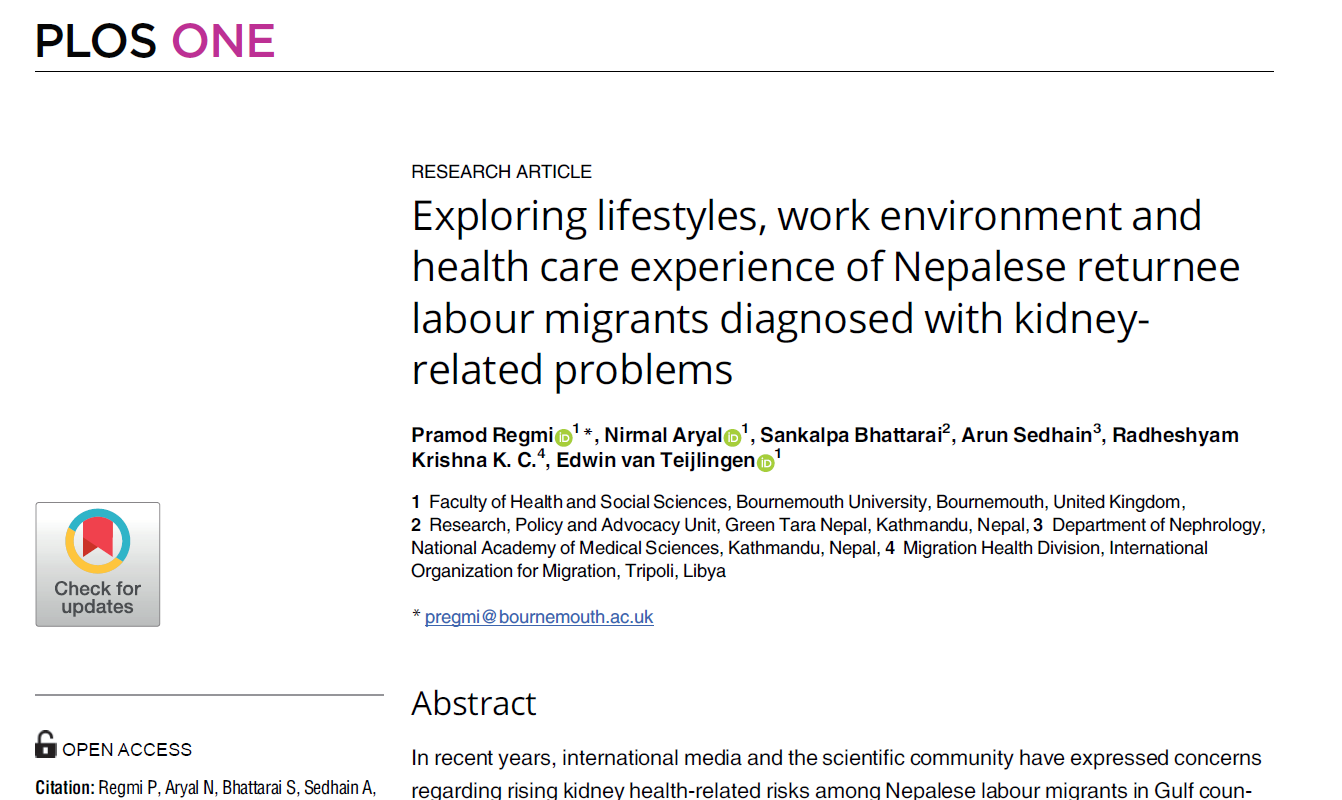 The is the latest in a series of academic papers related in one way of or another to kidney disease in migrant workers from Nepal [2-5].
The is the latest in a series of academic papers related in one way of or another to kidney disease in migrant workers from Nepal [2-5].
Prof. Edwin van Teijlingen
Centre for Midwifery & Women’s Health (CMWH)
References:
- Regmi, P., Aryal, N., Bhattarai, S., Sedhain, A., KC, R.K. and van Teijlingen, E. (2024) Exploring lifestyles, work environment and health care experience of Nepalese returnee labour migrants diagnosed with kidney-related problems, PLoS ONE 19(8): e0309203. https://doi.org/10.1371/journal.pone.0309203
- Aryal, N., Sedhain, A., Regmi, P.R., KC, R. K., van Teijlingen, E. (2021). Risk of kidney health among returnee Nepali migrant workers: A survey of nephrologists. Asian Journal of Medical Sciences, 12(12), 126–132. https://doi.org/10.3126/ajms.v12i12.39027
- Aryal, N., Regmi, P.R., Faller, E.M,, van Teijlingen, E., Khoon, C.C., Pereira, A., Simkhada, P. (2019) Sudden cardiac death and kidney health related problems among Nepali migrant workers in Malaysia, Nepal Journal of Epidemiology 9(3): 755-758. https://www.nepjol.info/index.php/NJE/article/view/25805
- Aryal, N., Regmi, P.R., Sedhain, A., KC, R.K., Martinez Faller, E., Rijal, A., van Teijlingen, E. (2021) Kidney health risk of migrant workers: An issue we can no longer overlook. Health Prospect 20(1):15-7
- Regmi, P., Simkhada, P., Aryal, N., van Teijlingen, E. (2022) Excessive mortalities among migrant workers: the case of the 2022 FIFA World Cup. Europasian Journal of Medical Sciences, 4:31-32. https://doi.org/10.46405/ejms.v4i0.455
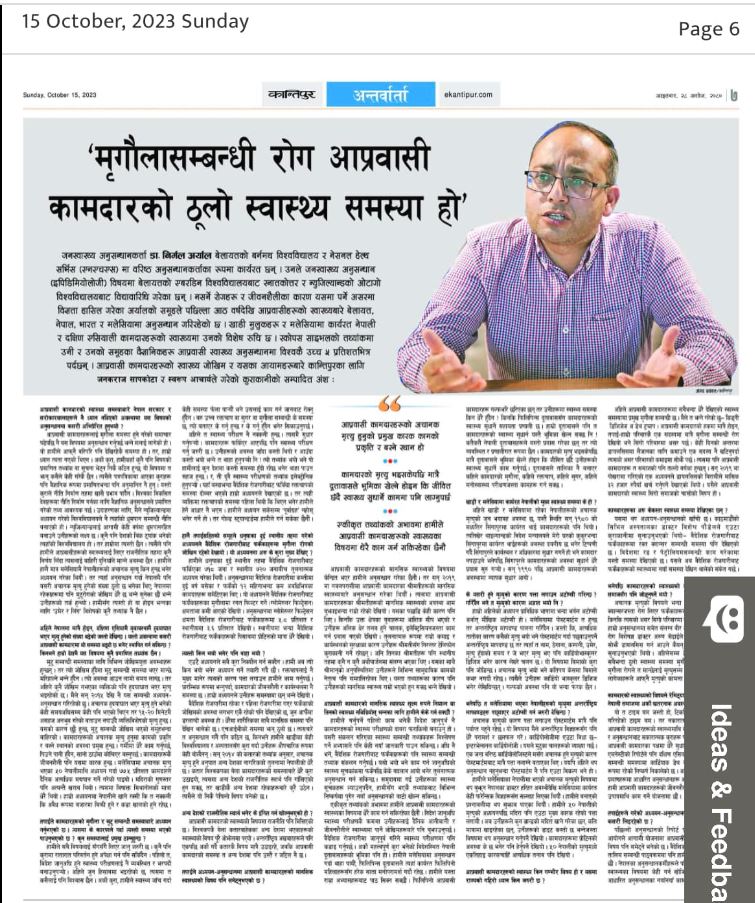

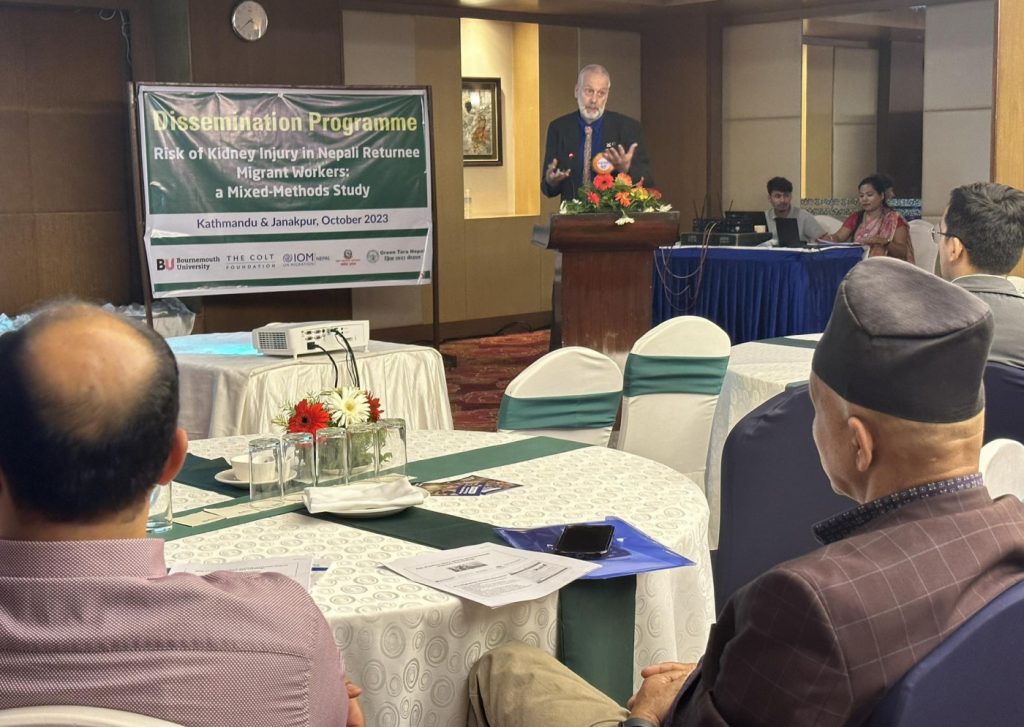
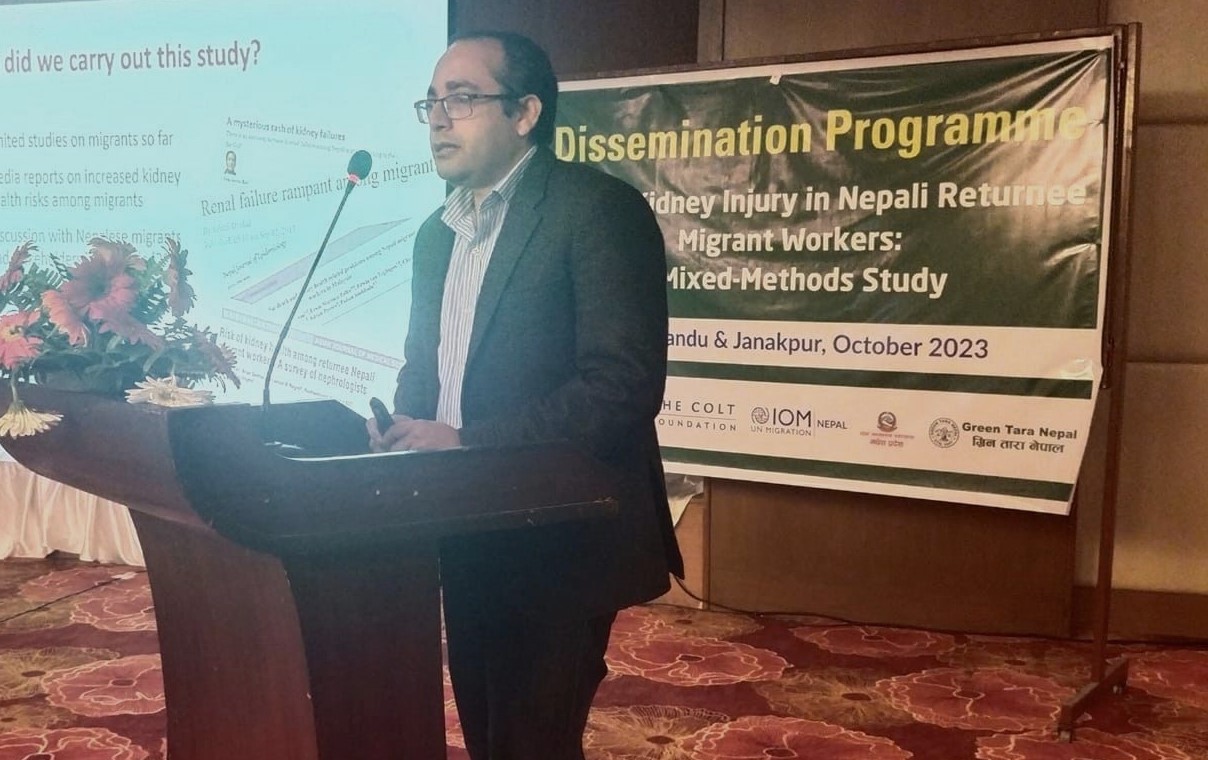

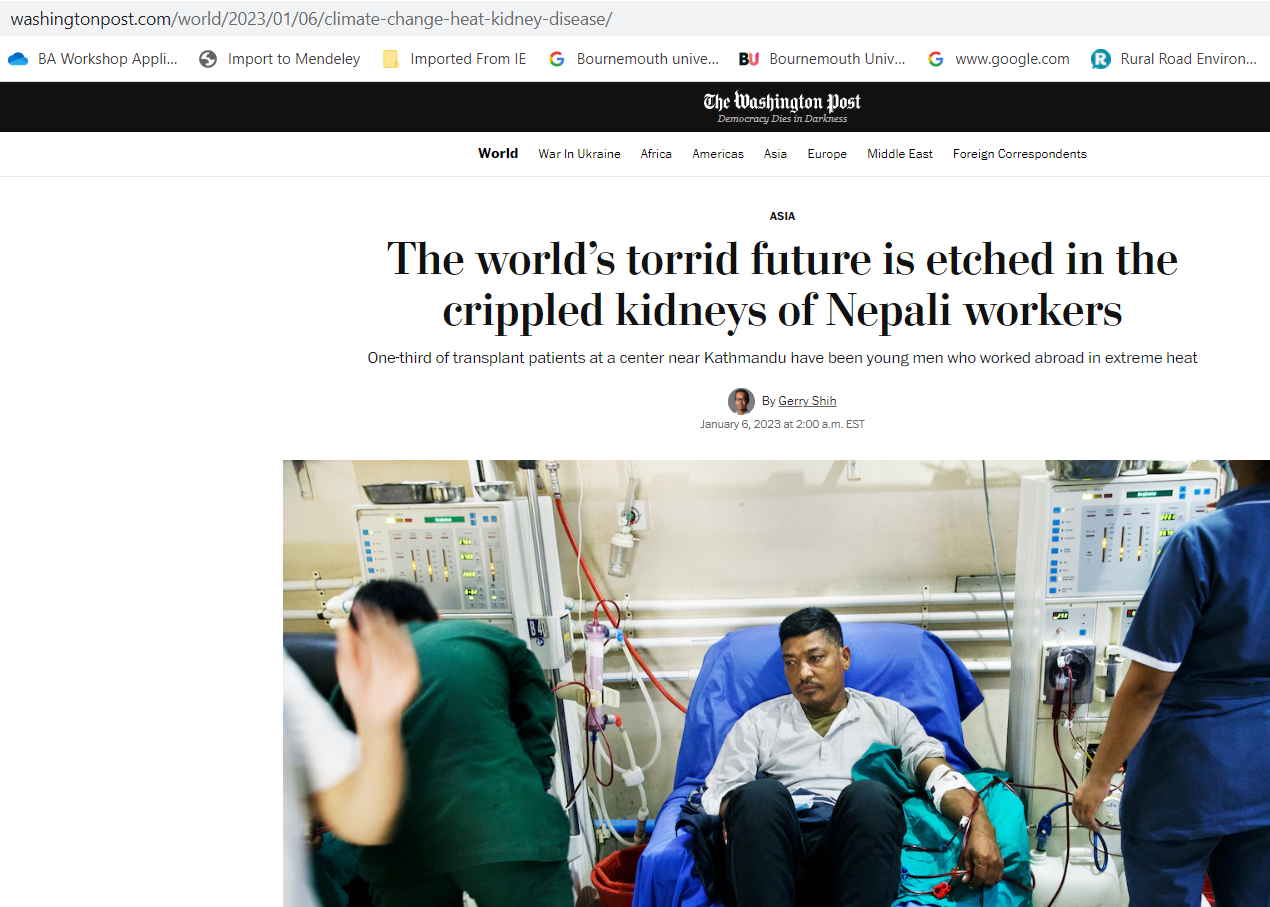

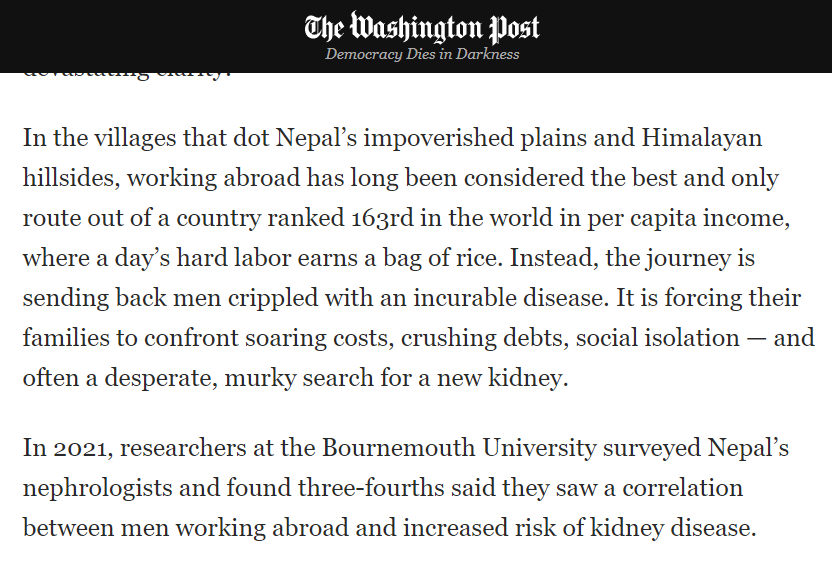
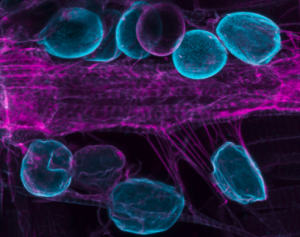 Whether its in you, a blue whale or a tiny insect, circulating fluids bathe and nourish organs, tissues and cells. To avoid compromising organ function, these ‘bloods’ are filtered and kept free of unwanted molecules. Studying these clearance mechanisms informs us about normal physiology, as well as disease across a vast array of organisms, from flies to humans.
Whether its in you, a blue whale or a tiny insect, circulating fluids bathe and nourish organs, tissues and cells. To avoid compromising organ function, these ‘bloods’ are filtered and kept free of unwanted molecules. Studying these clearance mechanisms informs us about normal physiology, as well as disease across a vast array of organisms, from flies to humans.
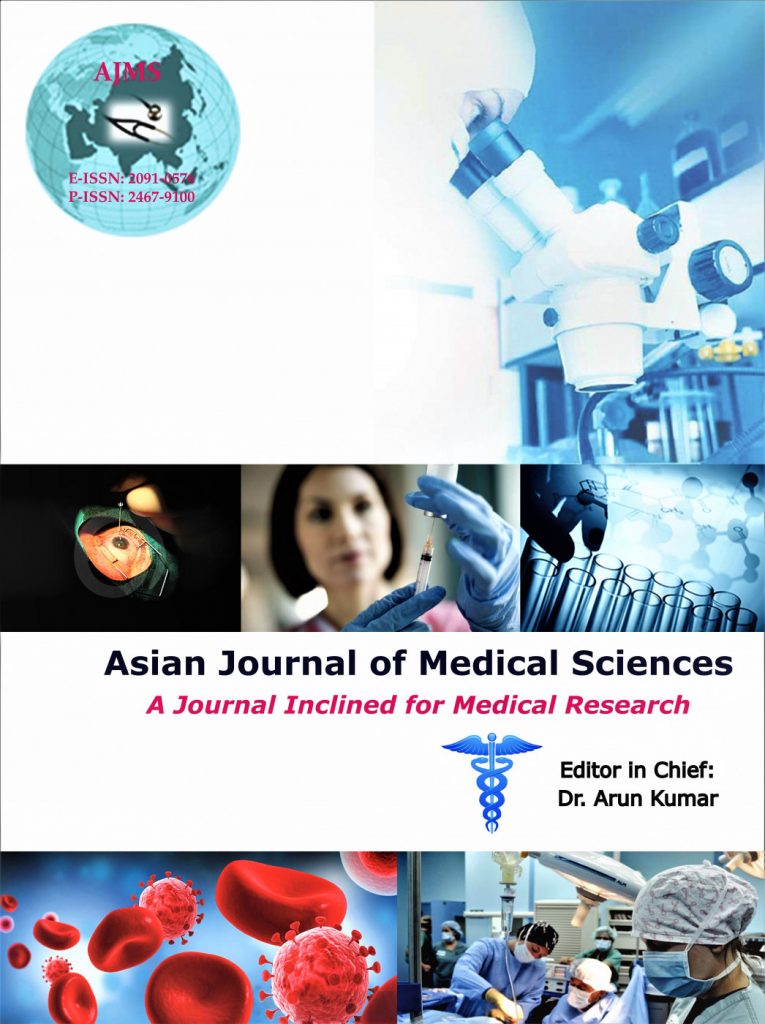
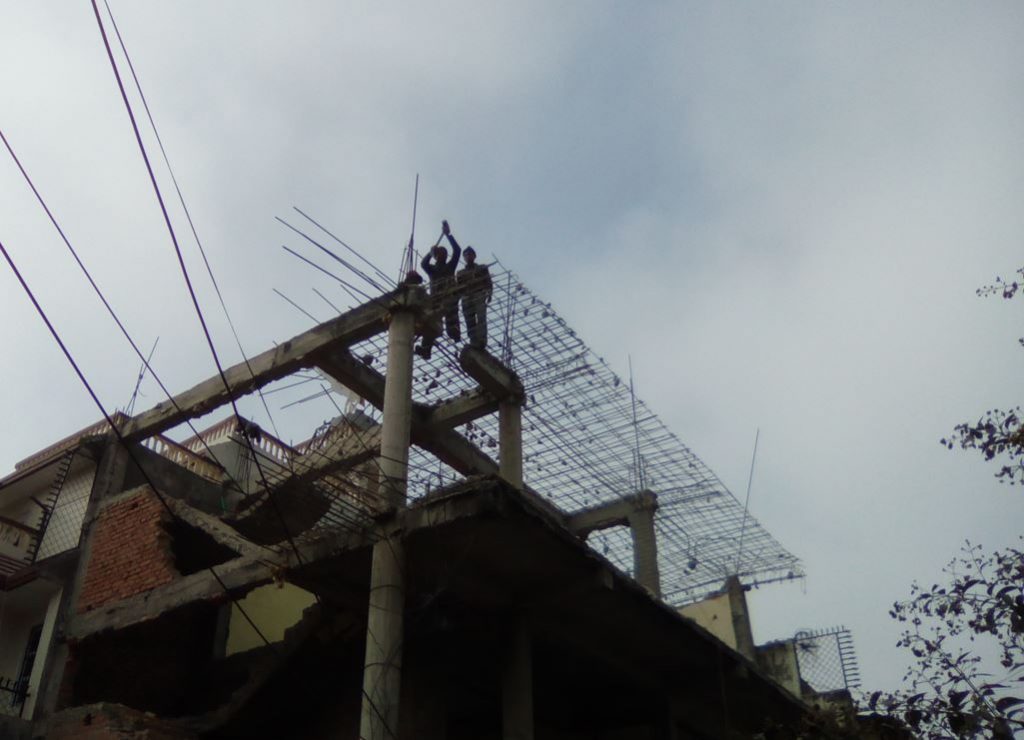

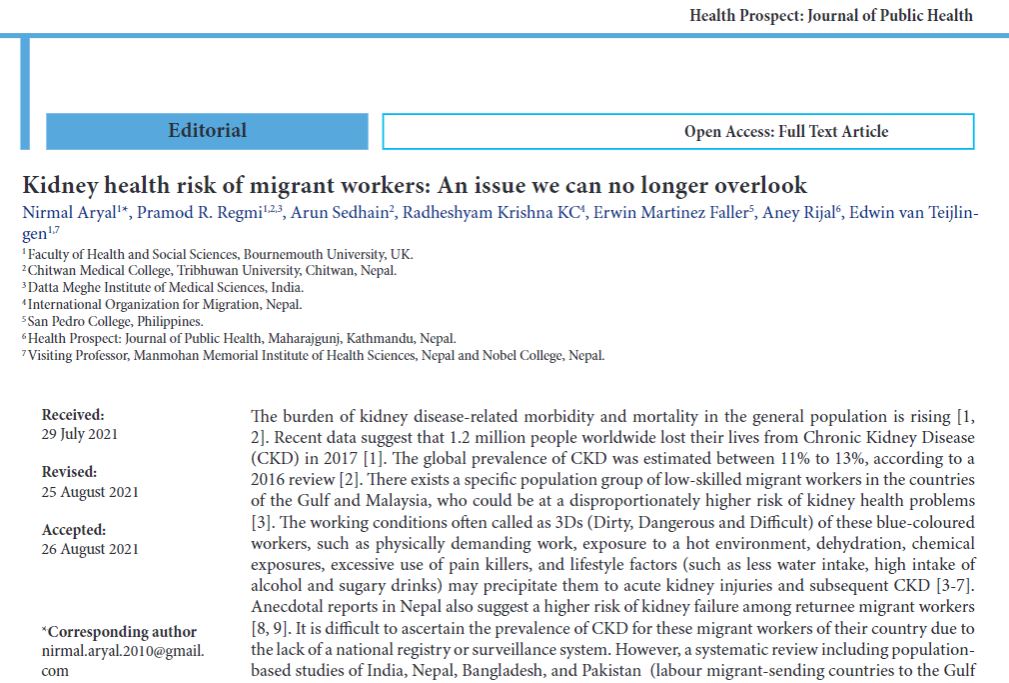
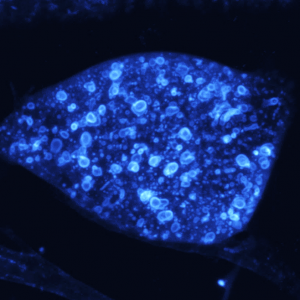 esearch, (led by me, Dr Paul Hartley), was recognised at UK Kidney Week in Liverpool last week. We were invited to speak about our fruit fly model of human renal disease, work that has been variously supported by grants from the British Heart Foundation and Kidney Research UK. The conference was an excellent opportunity to showcase the model and highlight our current collaborations with consultant-scientists based at Great Ormond Street Children’s Hospital as well as a number of different groups at the University of Bristol, the University of Osnabruck in Germany, Harvard Children’s Hospital and the University of Edinburgh. The research work is based in Dorset House labs and is supported by a wide network of talented people within BU as well as our undergrad and post-grad students.
esearch, (led by me, Dr Paul Hartley), was recognised at UK Kidney Week in Liverpool last week. We were invited to speak about our fruit fly model of human renal disease, work that has been variously supported by grants from the British Heart Foundation and Kidney Research UK. The conference was an excellent opportunity to showcase the model and highlight our current collaborations with consultant-scientists based at Great Ormond Street Children’s Hospital as well as a number of different groups at the University of Bristol, the University of Osnabruck in Germany, Harvard Children’s Hospital and the University of Edinburgh. The research work is based in Dorset House labs and is supported by a wide network of talented people within BU as well as our undergrad and post-grad students.










 Dr. Ashraf cited on ‘Modest Fashion’ in The Guardian
Dr. Ashraf cited on ‘Modest Fashion’ in The Guardian NIHR-funded research launches website
NIHR-funded research launches website Academics write for newspaper in Nepal
Academics write for newspaper in Nepal New paper published on disability in women & girls
New paper published on disability in women & girls MSCA Postdoctoral Fellowships 2025 Call
MSCA Postdoctoral Fellowships 2025 Call ERC Advanced Grant 2025 Webinar
ERC Advanced Grant 2025 Webinar Horizon Europe Work Programme 2025 Published
Horizon Europe Work Programme 2025 Published Horizon Europe 2025 Work Programme pre-Published
Horizon Europe 2025 Work Programme pre-Published Update on UKRO services
Update on UKRO services European research project exploring use of ‘virtual twins’ to better manage metabolic associated fatty liver disease
European research project exploring use of ‘virtual twins’ to better manage metabolic associated fatty liver disease